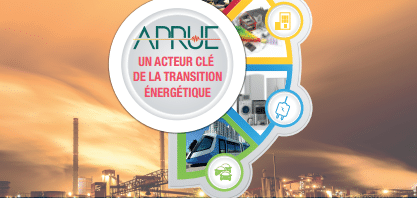
This energy transition will be a gradual process with increasing national integration capable to ensure its sustainability and thereby developing a sector with high potential for added value for the national economy. The national energy transition strategy highlights the cross-cutting nature of renewable energies and energy efficiency. They are at the crossroads of competence of several sectors and encourage synergy between the various ministerial departments, with the aim of common success of the economic, social and environmental objectives set out by the government.
The recent creation in June 2020 of a Ministry of Energy Transition and Renewable Energies is aligned with this policy. It will provide support and create bridges between all relevant national stakeholders and will become the single voice at the national and international level for issues related to energy transition and renewable energies. It is in this context that a roadmap for the energy transition towards sustainable human development was drawn up.
APRUE, with the objective of better team synergy, has a new organization with two major operational departments: the Sectoral Actions Department (DAS) and the Communication Training and Cooperation Department, (DCFC). A support department, the Administration, Finance and Resources Department (DAFM), completes this organization chart. The Communication Department’s mission is to mobilize stakeholders around the National Energy Management Program (PNME). APRUE aims to promote energy savings in all sectors of activity (building, transport, industry) and to mobilize stakeholders around the challenges of energy management.
In its communication strategy, APRUE has defined three targets: the general public, professionals, and of course the citizens of tomorrow; the pupils. It mainly focuses on behavior change, good gestures and reflexes capable of saving energy by using supports adapted to each target. Seasonal television and radio awareness spots are broadcast for the general public. One in winter for “heating” use and another in summer for “air conditioning” use.APRUE is also launching specific campaigns – through radio spots, project sheets, as well as leaflets and posters – intended to support the flagship programs included in the PNME (LPGc, solar water heaters and low-energy lamps ). Seminars, technical days and conferences promoting sharing of experiences between professionals in the field of energy savings are organized periodically with the publication of various technical guides in different sectors. Open days are held annually in schools, in partnership with the various departments of education. Via materials and educational guides adapted to children, the objective is to raise awareness by teaching them the right actions that can save energy at school and at home.
The main tasks of the Training Department are the application of PNME support measures. Among other things, the implementation of training in energy auditing (industry and building), Man-Energy in industry and in local communities, and in the management of fuels for captive transport fleets. The Department of International Cooperation is of particular importance for the APRUE, in particular by improving its know-how, exchanging information on energy efficiency policies as well as developing and steering programs on technology development. The Agency maintains close relations with several international partners, notably through the MEDENER network, of which APRUE is a founding member. APRUE and the French Agency for Energy Transition (ADEME) have combined thirty years of cooperation in the field of energy efficiency. The 2019-2020 action plan is in line with the programs already launched and essentially aims to promote energy efficiency in the building sector through three fundamental axes: changes in thermal regulations, improvement national supply of energy materials and services, and energy efficiency financing mechanisms.
In addition, an ongoing project, the establishment of Espace Info Énergie aims to help operators and local authorities to set up spaces to raise awareness, inform and advise the general public on energy management and the various programs.
Cooperation between Algeria and the European Union in the energy sector is part of the strategic partnership between this country and the EU launched in 2013 (operational modalities defined in 2015). The European technical assistance program provides support to the renewable energy and energy efficiency sector.In charge of the implementation of the National Energy Management Program, the APRUE is a key player in this project, in particular with the “National Renewable Energy Program” and the “National Energy Efficiency Program”, adopted by the Algerian authorities. This program has three objectives: to support the national authorities in reviewing and developing institutional arrangements for renewable energies and energy efficiency, to facilitate private investments in projects in these fields, and to strengthen technical and management capacities of institutions on these topics.